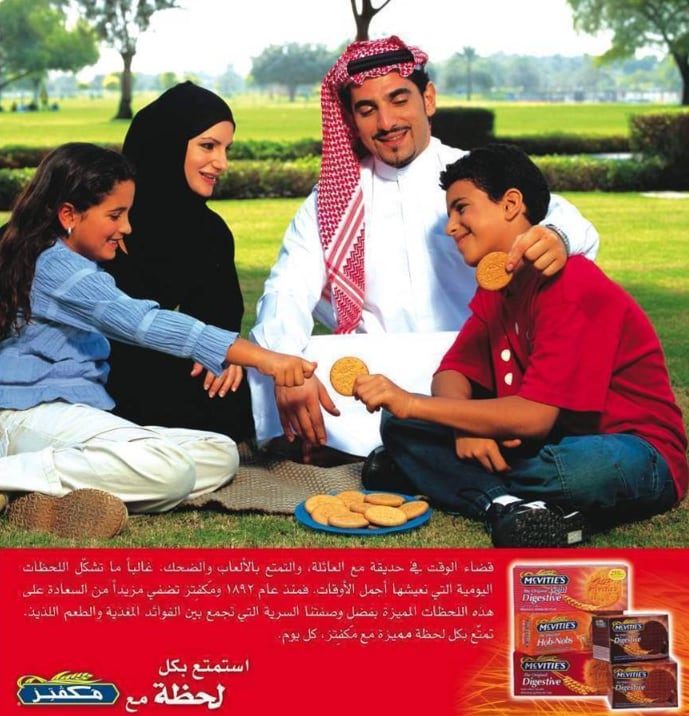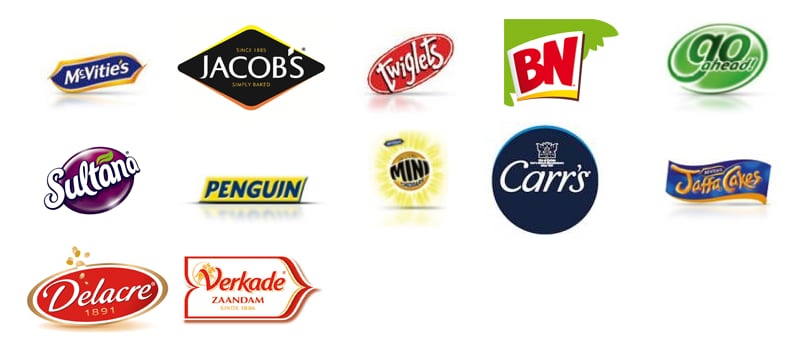15% of the firm’s sales now come outside the UK and North West Europe compared to 5% five years ago, which helped UB recently bag the Exporter of the Year (Large Company) award at a UK Food and Drink Federation (FDF) event.
British heritage
Speaking to ConfectioneryNews, UB’s CEO for international Jeff van der Eems said that the company’s principal message in all markets was positioning biscuits as a wholesome, but the firm occasionally capitalizes overseas on quintessentially British brands such as McVitie's.
“Britain is known for high quality biscuits. We tend not to push it unless there is a market that is particularly perceptive to it.”
He said playing on the brands’ British heritage worked well in markets such as Sweden and China, but less so in the Middle East.
“Sometimes we play up the royal thing too.” UB is warranted by the royal household and sometimes uses the royal seal on packs.
UB market shares
#1 – UK
#2 – France, Belgium, Holland, Republic of Ireland
#4 – Global (behind Mondelez, Kellogg and Campbell’s Soup respectively. Turkish firm Ülker is in fifth.
Formulation
UB has rarely adapted formulations for household brands such as Jacob’s and McVitie's HobNobs.
“We haven’t had to tailor the taste to the market,” said Van der Eems.
UB has fortified biscuits for Nigeria with vitamins and minerals that are deficient in the local population, but usually adapts the format rather the flavor. For example, its biscuits are smaller in India and sometimes it includes fewer biscuits in a pack.
Key export markets
The majority of UB international business is exports out of the UK.
The firm has seven factories in the UK, two in France, one in Holland, Belgium and India and a licensed facility in Nigeria.

According to Van der Eems, the company’s fastest growing export markets are Africa, the Middle East and China.
Middle East
Late last month, UB acquired Rana Confectionery Products’ business in Saudi Arabia, which gives the firm a manufacturing base in the region. The new plant will serve all of the Arabic countries and North Africa.
UB will also continue its partnership with local Saudi firm Ali Zaid Al-Quraishi & Brothers Company.
UB has a 20% share in the Gulf and a 15% share in Saudi Arabia. The biscuit market in the Middle East is dominated by local brand Teashop manufactured by National Biscuits & Confectionery Co.
Van der Eems said that Iran may one day become a possibility as sanctions on the nation are eased.
West Africa
UB’s African HQ is based in Nigeria. The firm has a strong position in West Africa and recently expanded to Kenya and Angola.
“We’ve got brands and products that travel well,” said van der Eems, giving McVities and Hobnobs as examples.
China
Last year, UB entered China. The firm was present in China over a decade ago, but this changed when the UB was privatised in 2000 and until last year it was limited to sales in Hong Kong.
In China, the firm has high hopes for McVitie’s known as ‘Mei-wai-ga’in Chinese, which translates as “tasty wheat vitality”.
However, it faces stiff completion in China from Mondelez International’s Oreo cookies.
UB’s products for China are manufactured in the UK. Van der Eems said that UB recently invested in through-put in the lines and automation at existing plants and had enough capacity to keep pace with overseas demands from factories in the UK and Europe.

Home market
United Biscuits leads the biscuits category in the UK with a 25% share ahead of Burton’s Biscuits.
Burton’s was recently sold by private equity owners Canadian Imperial Bank of Commerce and Apollo Global Management to Canadian pension fund Ontario Teachers’ Pension Plan (OTPP).
“I expect them to be as competitive as they always were,” said Van der Eems.
He added that the UK market was mature and tended to grow around 3-4% per year, whereas international markets were growing around 8-20% per year.
